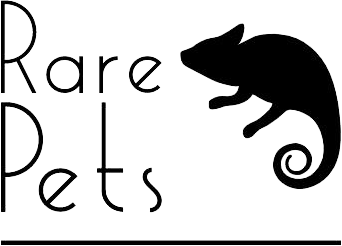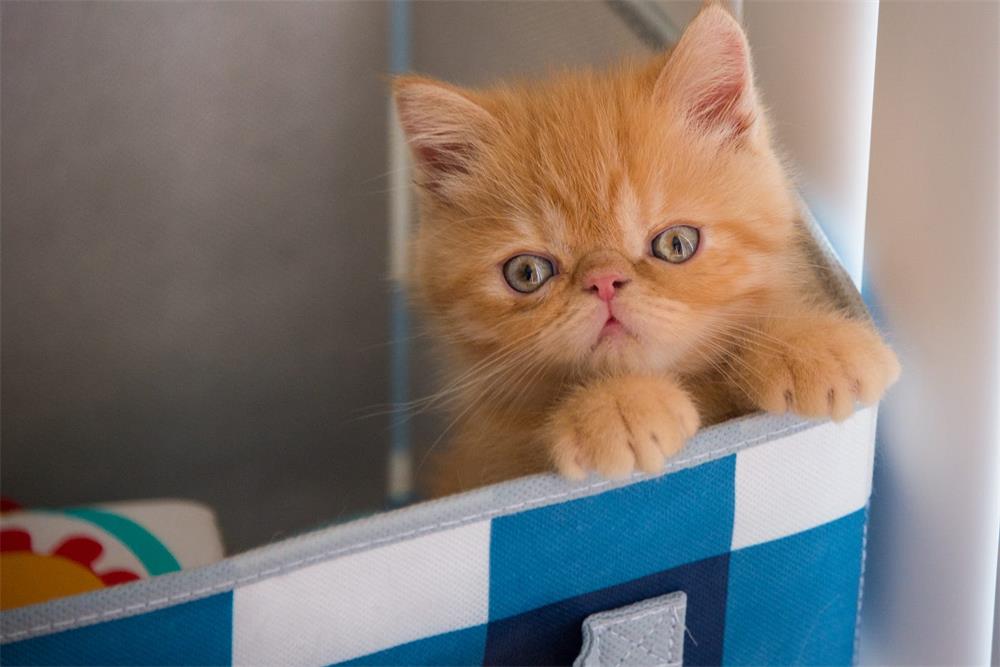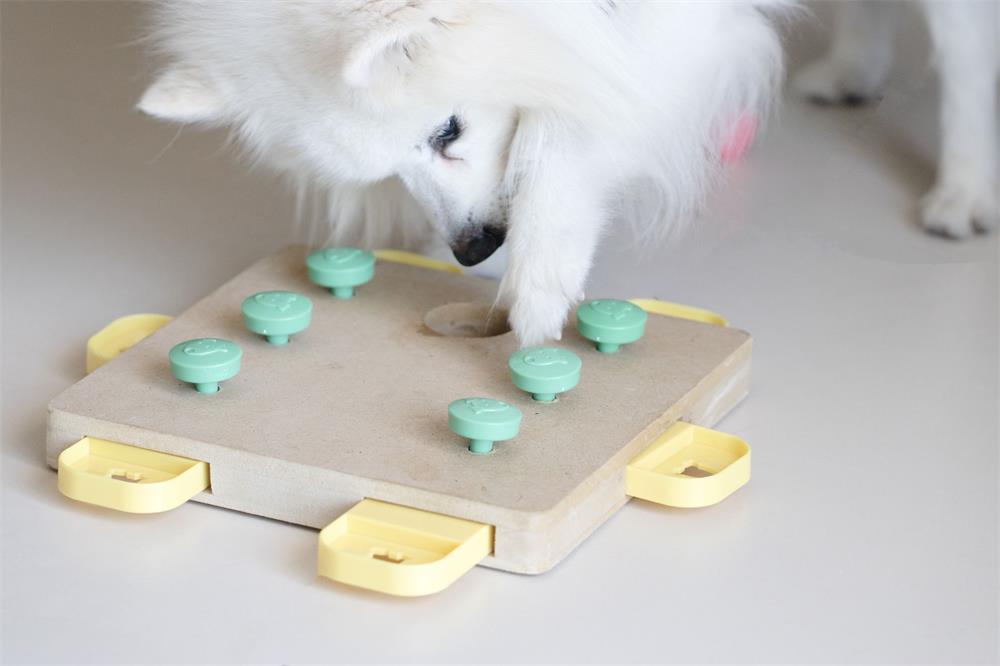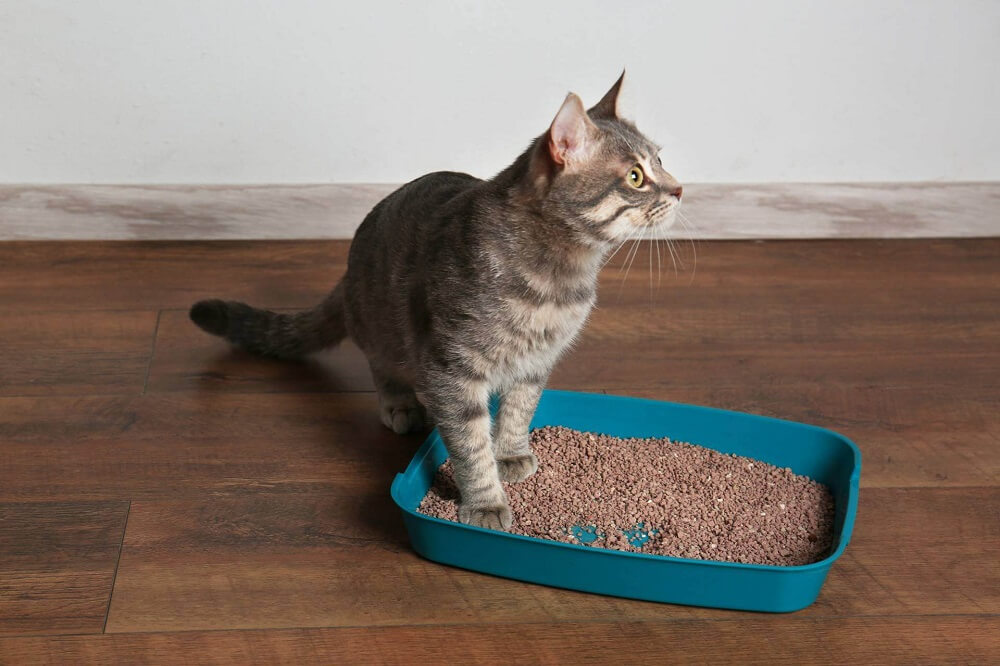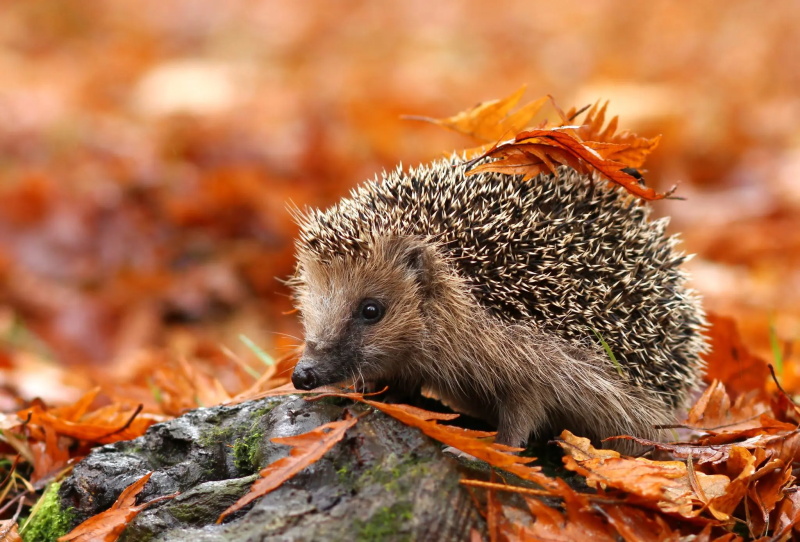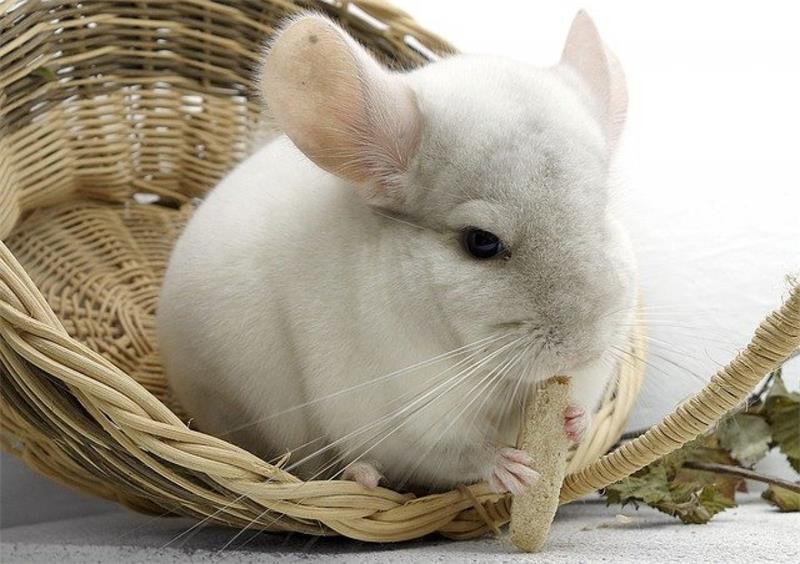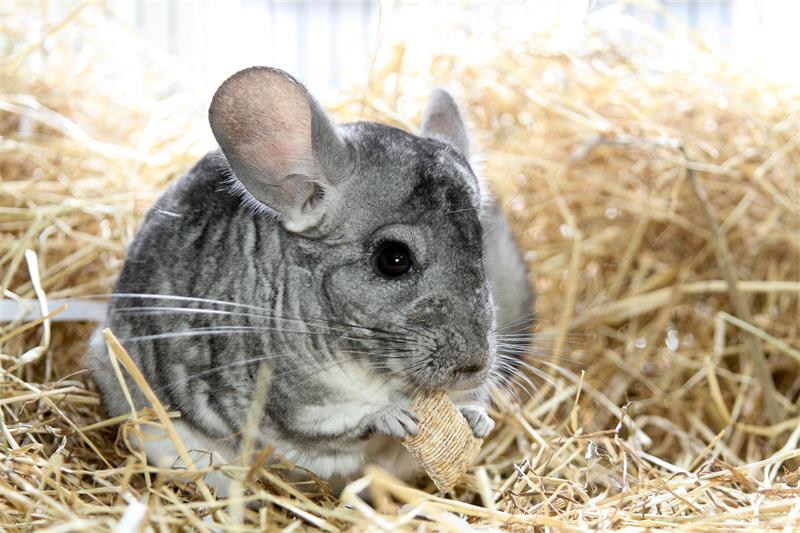A description of the signs and signals that indicate your chinchilla’s mood or emotional state, such as body language, vocalizations, behaviors or habits.

Table of Contents
Chinchillas are adorable and intelligent rodents that can make great pets. They have complex personalities and emotions, and they can communicate their mood or emotional state through various signs and signals. As a chinchilla owner, it is important to understand these signs and signals, so you can provide the best care and environment for your furry friend.
In this article, we will discuss some of the common signs and signals that indicate your chinchilla’s mood or emotional state, such as body language, vocalizations, behaviors or habits. We will also give you some tips on how to make your chinchilla happy and avoid stress or fear.
Body language
Chinchillas use their body language to express their feelings and intentions. Some of the body language cues that you can observe are:
- Ears: Chinchillas have large ears that can move independently. They can use their ears to show their mood or interest. For example, when they are relaxed or curious, they may have their ears upright and forward. When they are scared or angry, they may have their ears flattened or pulled back.
- Eyes: Chinchillas have expressive eyes that can show their emotions. For example, when they are happy or content, they may wink or smile at you. When they are annoyed or displeased, they may squint or glare at you.
- Tail: Chinchillas have long and bushy tails that can also indicate their mood or interest. For example, when they are happy or excited, they may wag their tails from side to side, curling and uncurling them. This is especially common in males when they are courting females. When they are scared or angry, they may hold their tails stiffly or tuck them under their body.
- Posture: Chinchillas have different postures that can show their mood or intention. For example, when they are relaxed or comfortable, they may lie on their side or back, exposing their belly. When they are alert or curious, they may stand on their hind legs, looking around. When they are scared or defensive, they may crouch low, arch their back, raise their fur, and show their teeth.
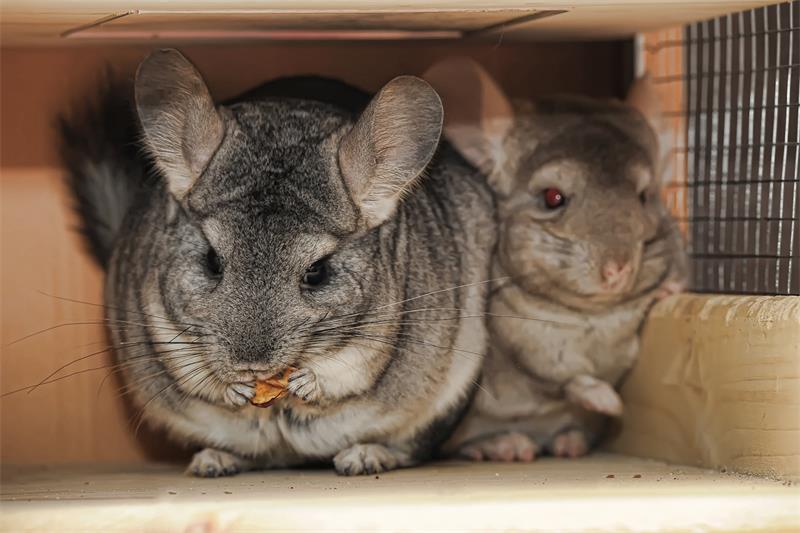
Vocalizations
Chinchillas are vocal animals that can make various sounds to communicate with each other or with you. Some of the vocalizations that you can hear are:
- Barking: Chinchillas may bark when they are startled, scared, annoyed, or unhappy. They may also bark to get your attention or to warn you of something. Barking is usually a sign of stress or fear in chinchillas.
- Whistling: Chinchillas may whistle when they are happy, excited, playful, or interested. They may also whistle to greet you or to call for you. Whistling is usually a sign of positive emotions in chinchillas.
- Grunting: Chinchillas may grunt when they are angry, irritated, displeased, or dominant. They may also grunt to express their dislike of something or someone. Grunting is usually a sign of negative emotions in chinchillas.
- Squeaking: Chinchillas may squeak when they are in pain, discomfort, distress, or fear. They may also squeak to express their dissatisfaction or protest. Squeaking is usually a sign of negative emotions in chinchillas.
Behaviors
Chinchillas have various behaviors that can indicate their mood or emotional state. Some of the behaviors that you can observe are:
- Grooming: Chinchillas groom themselves and each other regularly to keep their fur clean and healthy. They may also groom as a sign of affection and bonding. Grooming consists of a series of light nibbles and licks on the fur. Grooming is usually a sign of positive emotions in chinchillas.
- Nibbling: Chinchillas nibble on various things to keep their teeth healthy and prevent overgrowth. They may also nibble as a way of communicating and showing affection. Nibbling is different from biting; it is gentle and does not cause pain or damage. Nibbling can be a sign of positive emotions in chinchillas.
- Chewing fur: Chinchillas may chew their own fur or another chinchilla’s fur when they are stressed, bored, depressed, or anxious. This can result in patches of fur loss or uneven fur length. Chewing fur is usually a sign of negative emotions in chinchillas.
- Hiding: Chinchillas may hide when they are scared, nervous, shy, or insecure. They may seek shelter in a hideout, a corner, or under bedding. Hiding is usually a sign of negative emotions in chinchillas.
- Wall surfing: Chinchillas may wall surf when they are happy, excited, playful, or energetic. They may run around, jump up, and bounce off the walls of their cage or enclosure. Wall surfing is usually a sign of positive emotions in chinchillas.
- Pop corning: Chinchillas may pop corn when they are happy, excited, playful, or delighted. They may jump straight up in the air, usually accompanied by a twitch or jerk at the top of the jump. Pop corning is usually a sign of positive emotions in chinchillas.
- Repetitive movements: Chinchillas may perform repetitive movements when they are stressed, bored, frustrated, or unhappy. They may race back and forth on the bottom of their cage, spin in circles, or rock from side to side. Repetitive movements are usually a sign of negative emotions in chinchillas.
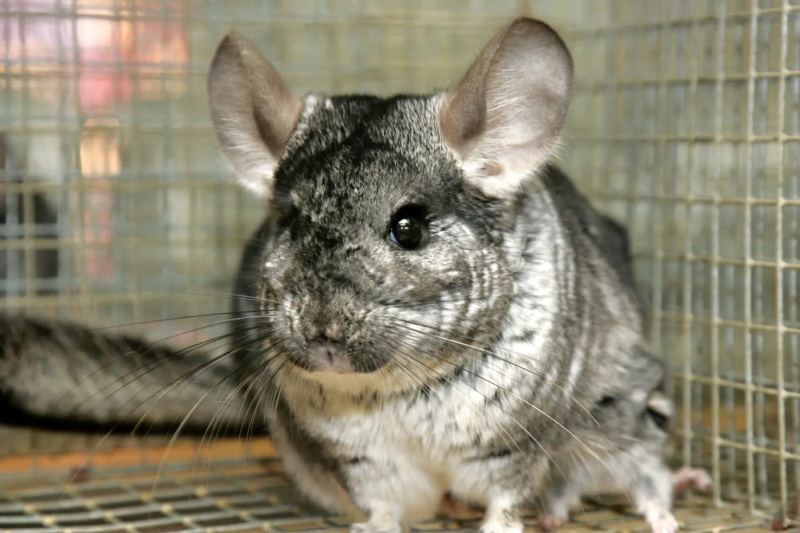
Habits
Chinchillas have various habits that can indicate their mood or emotional state. Some of the habits that you can observe are:
- Feeding: Chinchillas have a healthy appetite and need a balanced diet of hay, pellets, fresh water, and occasional treats. They may eat more or less depending on their mood or health. For example, when they are happy or content, they may eat normally and enjoy their food. When they are stressed or sick, they may eat less or stop eating altogether.
- Drinking: Chinchillas need fresh water available at all times to stay hydrated and healthy. They may drink more or less depending on their mood or health. For example, when they are happy or content, they may drink normally and use their water bottle properly. When they are stressed or sick, they may drink more or less than usual, or play with their water bottle excessively.
- Toileting: Chinchillas produce small and dry feces that are easy to clean up. They may produce more or less feces depending on their mood or health. For example, when they are happy or content, they may produce normal and consistent feces. When they are stressed or sick, they may produce fewer or more feces than usual, or have diarrhea or constipation.
- Sleeping: Chinchillas are nocturnal animals that sleep during the day and are active at night. They may sleep more or less depending on their mood or health. For example, when they are happy or content, they may sleep normally and comfortably in their hideout or bedding. When they are stressed or sick, they may sleep less or more than usual, or have trouble sleeping.
Tips to make your chinchilla happy and avoid stress
As you can see from the above signs and signals, chinchillas can experience a range of emotions and moods that affect their well-being and quality of life. As a responsible chinchilla owner, you want to make sure that your chinchilla is happy and healthy as much as possible.
Here are some tips to make your chinchilla happy and avoid stress:
- Provide a spacious and comfortable cage: Chinchillas need a large and secure cage that allows them to move around freely and exercise their natural behaviors. The cage should have multiple levels, platforms, ramps, shelves, and hideouts for them to explore and rest. The cage should also have soft bedding material such as fleece or paper for them to burrow and sleep in.
- Provide a stimulating and enriching environment: Chinchillas need a stimulating and enriching environment that keeps them entertained and engaged. The environment should have various toys such as chew toys.
- Chewing toys, tunnels, bridges, balls, and other items that stimulate their natural instincts and curiosity. The toys should be made of safe and non-toxic materials such as wood, cardboard, or hay. The toys should also be rotated regularly to prevent boredom and keep their interest.
- Provide a social and friendly companion: Chinchillas are social animals that need a friend of their own kind to keep them company and happy. A single chinchilla can become lonely, depressed, or aggressive. A pair or group of chinchillas can provide each other with comfort, support, and entertainment. However, you should only introduce chinchillas that are compatible and bonded, otherwise they may fight and injure each other. You should also provide enough space and resources for each chinchilla to avoid overcrowding and competition.
- Provide a safe and stress-free environment: Chinchillas need a safe and stress-free environment that protects them from predators, loud noises, bright lights, extreme temperatures, drafts, humidity, and other potential hazards. You should also avoid handling your chinchilla too much or too roughly, as this can cause stress or fear. You should only handle your chinchilla gently and with care, and respect their wishes if they want to be left alone.
- Provide regular health checks and veterinary care: Chinchillas need regular health checks and veterinary care to prevent and treat any illnesses or injuries that may affect their mood or well-being. You should examine your chinchilla regularly for any signs of illness or injury, such as changes in appetite, weight, behavior, fur, skin, eyes, ears, nose, mouth, teeth, feet, or feces. You should also consult a vet as soon as possible if you notice any signs of illness or injury in your chinchilla.
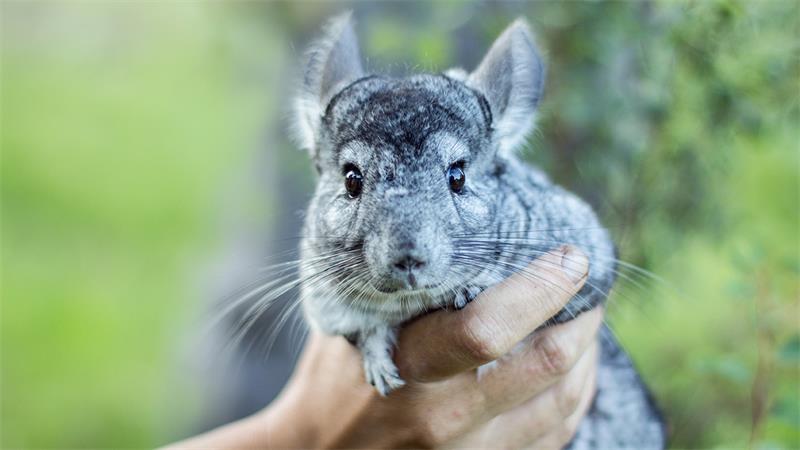
Conclusion
Chinchillas are wonderful pets that can show their mood or emotional state through various signs and signals. By understanding these signs and signals, you can provide the best care and environment for your chinchilla and make them happy and healthy. You can also bond with your chinchilla and enjoy their unique personality and charm. Chinchillas are sensitive and delicate animals that need your attention and respect. By following the tips in this article, you can make your chinchilla happy and avoid stress as much as possible. A happy chinchilla is a healthy chinchilla that will reward you with its love and loyalty for many years to come.
